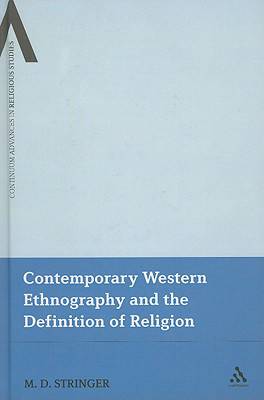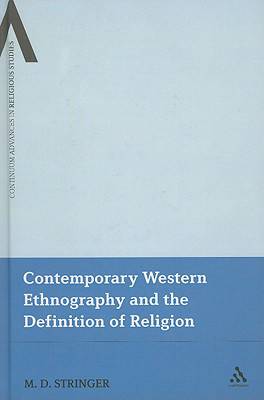
- Afhalen na 1 uur in een winkel met voorraad
- Gratis thuislevering in België vanaf € 30
- Ruim aanbod met 7 miljoen producten
- Afhalen na 1 uur in een winkel met voorraad
- Gratis thuislevering in België vanaf € 30
- Ruim aanbod met 7 miljoen producten
Zoeken
Contemporary Western Ethnography and the Definition of Religion
Martin D Stringer
€ 296,95
+ 593 punten
Uitvoering
Omschrijving
Is a person sitting next to a grave of a loved one, talking to the deceased person, engaging in a religious act? Many traditional definitions of religion would probably say no. However, the research that forms the basis of this book suggests that such activity is very widespread in contemporary Britain and the author aims to argue that it is probably much more typical of a fundamental religious act than much of what happens in churches, synagogues or mosques. Beginning with the definitions of religion provided by a number of anthropologists and sociologists this book claims that the large majority of these definitions have been influenced by Christian thinking, so leading to definitions that stress the systematic nature of religion, the importance of the transcendental and the transformative activity of religion. Through a detailed exploration of a number of ethnographic studies of religious activity in various parts of England, these aspects of traditional definitions are challenged. Martin Stringer argues, borrowing Durkheim's language, that the most elementary form of religious life in many Western societies today, and by implication in many other societies around the world, is situational, mundane and concerned with helping people to cope with their day to day lives.
Specificaties
Betrokkenen
- Auteur(s):
- Uitgeverij:
Inhoud
- Aantal bladzijden:
- 142
- Taal:
- Engels
- Reeks:
- Reeksnummer:
- nr. 12
Eigenschappen
- Productcode (EAN):
- 9780826499783
- Verschijningsdatum:
- 17/03/2008
- Uitvoering:
- Hardcover
- Formaat:
- Genaaid
- Afmetingen:
- 155 mm x 234 mm
- Gewicht:
- 362 g

Alleen bij Standaard Boekhandel
+ 593 punten op je klantenkaart van Standaard Boekhandel
Beoordelingen
We publiceren alleen reviews die voldoen aan de voorwaarden voor reviews. Bekijk onze voorwaarden voor reviews.











